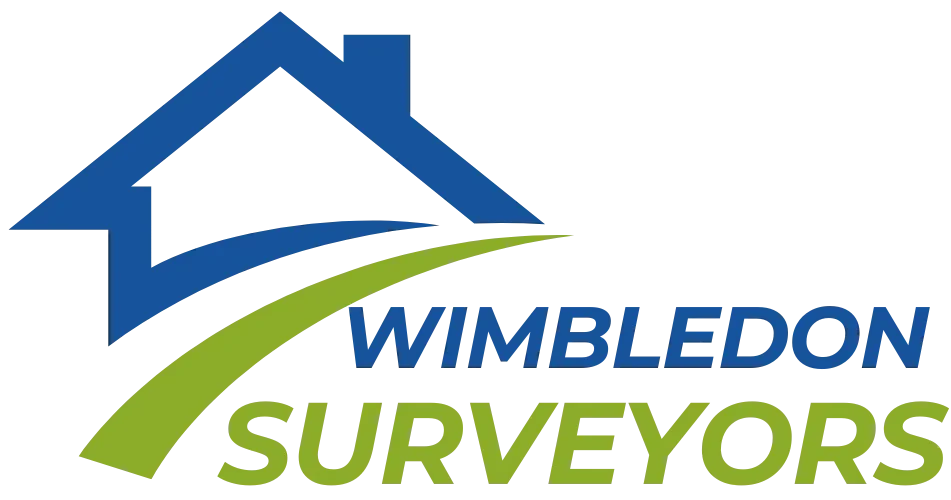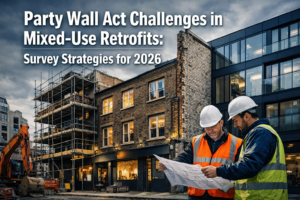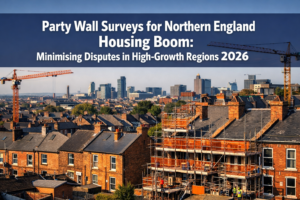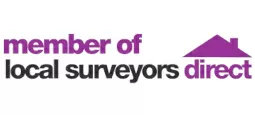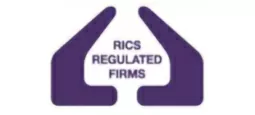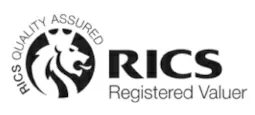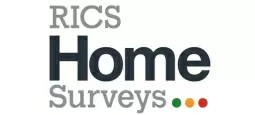When it comes to property boundaries, construction projects, or land development, finding a qualified surveyor near me is essential. Whether you’re buying a home, settling a boundary dispute, or planning a construction project, a professional surveyor provides the precise measurements and documentation you need. This comprehensive guide will walk you through everything you need to know about finding, evaluating, and hiring the right local surveyor for your specific needs.
Qualities of a Surveyor
A professional surveyor using precision equipment to establish property boundaries
A surveyor is a licensed professional who measures and maps land, determining precise property boundaries and documenting important land features. Using specialized equipment and mathematical calculations, surveyors create official records that are used for legal documents, construction projects, and property transactions.
Common Scenarios When You Need a Surveyor
- Buying or selling property to confirm exact boundaries
- Building a new home, fence, or addition to ensure proper placement
- Resolving property line disputes with neighbors
- Dividing land for development or sale
- Determining flood zones or environmental restrictions
- Creating maps for engineering or construction projects
- Verifying compliance with local zoning regulations
Need a Professional Surveyor?
Don’t risk costly property disputes or construction errors. Find qualified surveyors in your area today.
How to Search for "Surveyor Near Me"
Finding a qualified local surveyor requires knowing where to look and what to look for. Here’s a step-by-step approach to locating the best surveying professionals in your area:
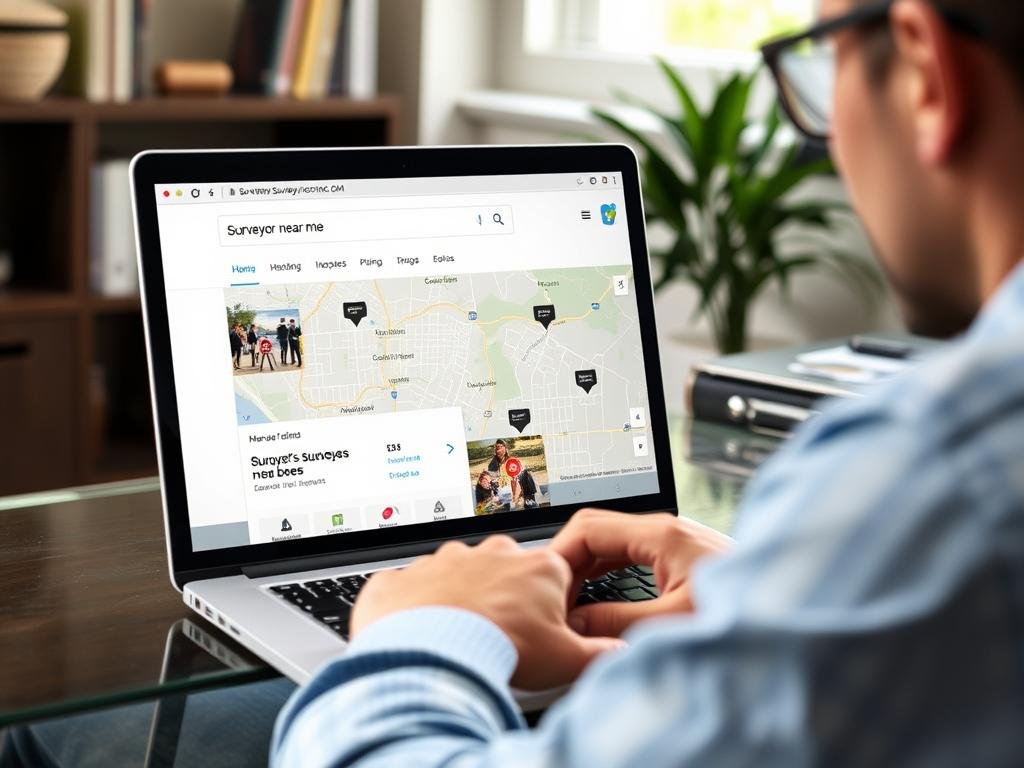
Using online resources to find local surveyors in your area
Online Search Tools
- Google Maps: Search “surveyor near me” to see local options with reviews, contact information, and directions. Filter results by rating and distance to find the most convenient options.
- Professional Liason: contact us for accredited surveying professionals.
- Service Marketplaces: Platforms like HomeGuide allow you to enter your post code and specific needs to get matched with qualified surveyors.
- Social Media: Check local Facebook groups or Nextdoor for recommendations from neighbors who have recently used surveying services.
- County Records Office: Contact your local county records office, as they often maintain lists of licensed surveyors who regularly file documents in your area.
Pro Tip: When searching online, include your specific location (city or neighborhood) along with “surveyor near me” to get more relevant results. For example, “surveyor near me in Phoenix” or “land surveyor near me Scottsdale.”
How to Evaluate Local Surveyors
Not all surveyors offer the same level of expertise, service, or value. Use these criteria to evaluate potential surveyors before making your decision:
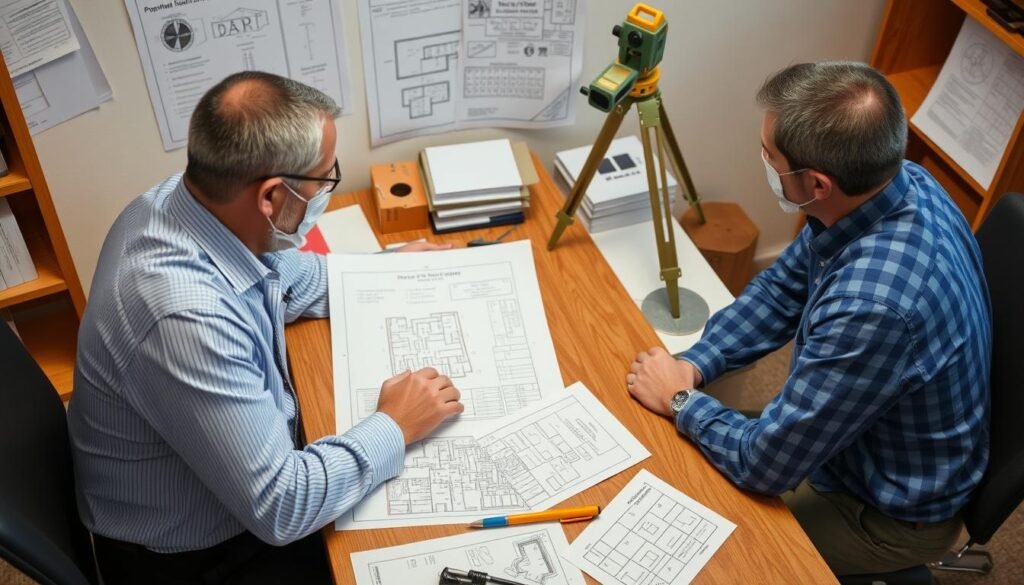
A surveyor discussing property boundaries and survey results with a client
Essential Qualifications
- Licensing: Verify that the surveyor is licensed in your state. This is non-negotiable.
- Professional Certifications: Look for memberships in professional organisations like CIOB, RPSA and RICS.
- Insurance: Ensure they carry professional liability insurance to protect against errors.
- Experience: Consider how long they’ve been practicing and their familiarity with your specific type of survey.
- Specialised Knowledge: Some surveyors specialise in residential, commercial, or specific types of surveys.
Service Indicators
- Reviews and Ratings: Check online reviews on Google and specialised directories.
- Response Time: How quickly do they respond to inquiries?
- Communication: Are they clear about their process and timeline?
- Documentation: Do they provide comprehensive, easy-to-understand reports?
- Technology: Do they use modern surveying equipment and software?
Ready to Compare Local Surveyors?
Get quotes from multiple licensed professionals in your area to ensure you’re getting the best service and value.
Essential Questions to Ask Before Hiring a Surveyor
Before committing to a surveyor, make sure to ask these important questions to ensure they’re the right fit for your specific needs:
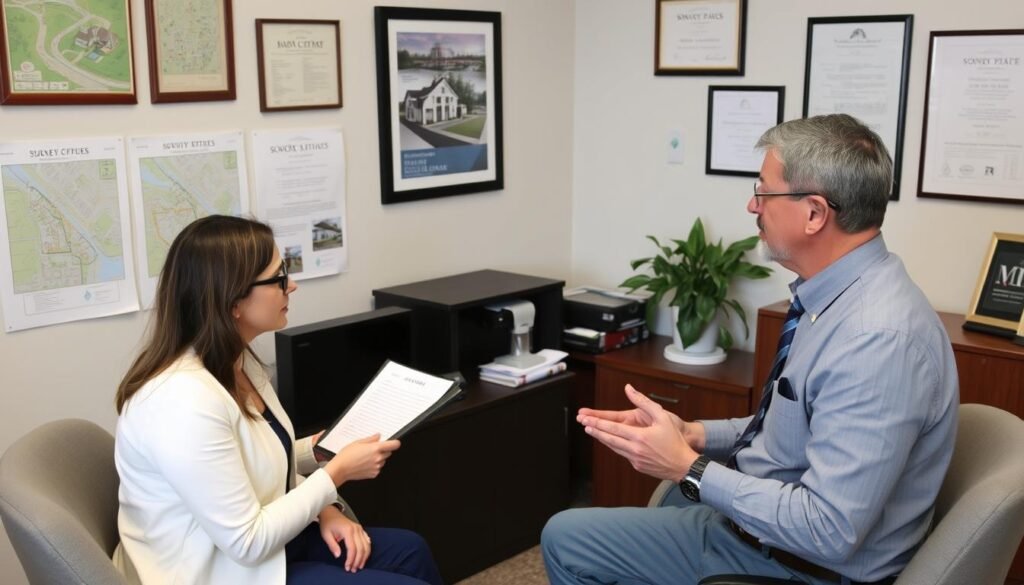
Asking the right questions helps ensure you hire the best surveyor for your needs
What specific equipment do you use for surveys?
Modern surveyors should use total stations, GPS equipment, and drone technology when appropriate. The answer will reveal their technological capabilities and precision level.
Can you provide sample reports from previous surveys?
Reviewing sample reports helps you understand what to expect and assess the clarity and thoroughness of their documentation.
What is your experience with my specific type of survey?
Different surveys (boundary, topographic, etc.) require different expertise. Ensure they have relevant experience with your specific needs.
What is your timeline for completing the survey?
Understanding their schedule and availability helps you plan accordingly, especially if you have time-sensitive needs like closing on a property.
How do you handle property line disputes?
If you’re dealing with a boundary issue, their approach to resolving disputes and their willingness to testify if needed is important.
What information do you need from me before starting?
Understanding what documents and information you need to provide helps ensure a smooth process and accurate results.
Do you provide stakes or markers at property corners?
Some surveyors include physical markers as part of their service, while others charge extra. Clarify what’s included in their quote.
Are you familiar with local zoning regulations and restrictions?
Local knowledge is valuable, especially if you’re planning construction or dealing with unique local requirements.
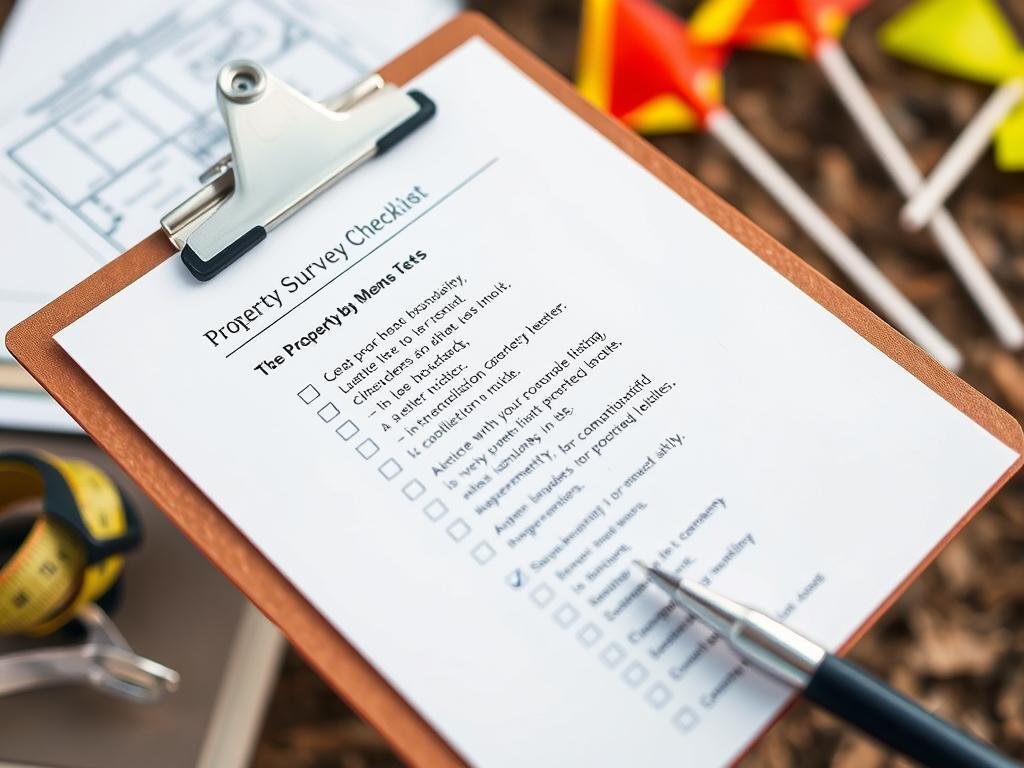
A comprehensive checklist helps ensure your surveyor covers all necessary aspects
Understanding Survey Costs and Pricing Factors
Survey costs vary widely based on several factors. Understanding these variables helps you budget appropriately and recognize fair pricing:
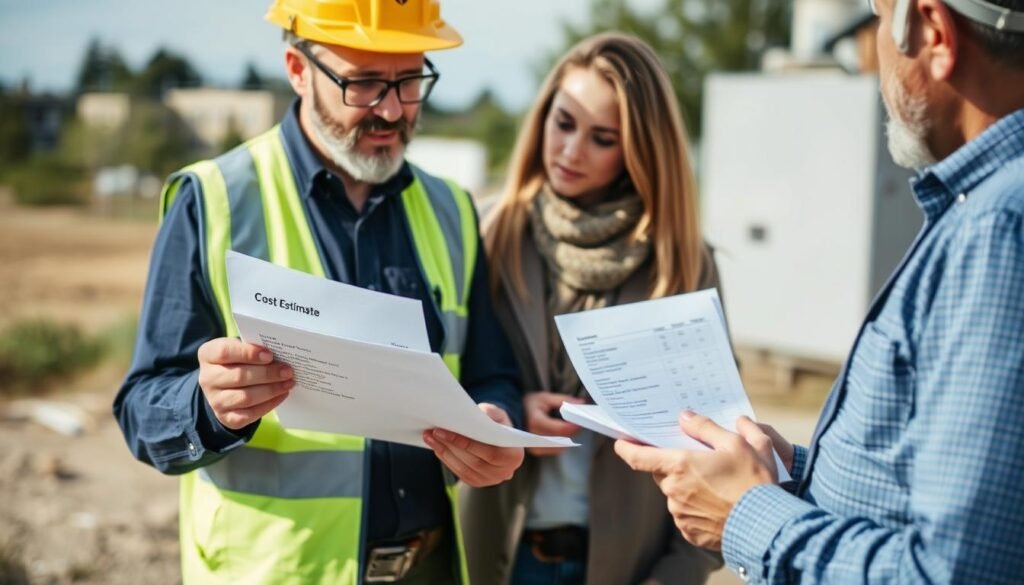
Understanding survey pricing helps you budget appropriately for your project
Typical Cost Ranges
| Survey Type | Average Cost Range | Typical Timeframe | When It’s Needed |
| Boundary Survey | £500 – £800 | 1-2 weeks | Property purchases, fence installation, boundary disputes |
| Building Survey | £700 – £3,500 | 2-3 weeks | Residential and commercial property transactions, mortgage requirements |
| Topographic Survey | £1,000 – £3,000 | 1-2 weeks | Construction projects, drainage planning |
| Mortgage Survey | £500 – £700 | 3-7 days | Home purchases with mortgage lender requirements |
| Construction Staking | £400 – £1,000 | 1-3 days | New construction, additions, site development |
Factors Affecting Survey Costs
- Property Size: Larger properties typically cost more to survey
- Property Terrain: Difficult terrain (hills, dense vegetation) increases time and cost
- Survey Type: More complex surveys require additional work and documentation
- Property Location: Urban areas often have higher rates than rural areas
- Research Required: Properties with complicated histories need more research
- Accessibility: Hard-to-reach properties require more time and effort
- Seasonal Factors: Weather and seasonal conditions can affect pricing
- Urgency: Prioritise jobs typically command premium pricing
Money-Saving Tip: Ask if the surveyor offers discounts for providing existing documentation like previous surveys, deeds, or property records. This can reduce their research time and potentially lower your cost.
Recommended "Surveyor Near Me" Services
These reputable platforms can help you find qualified surveyors in your local area:
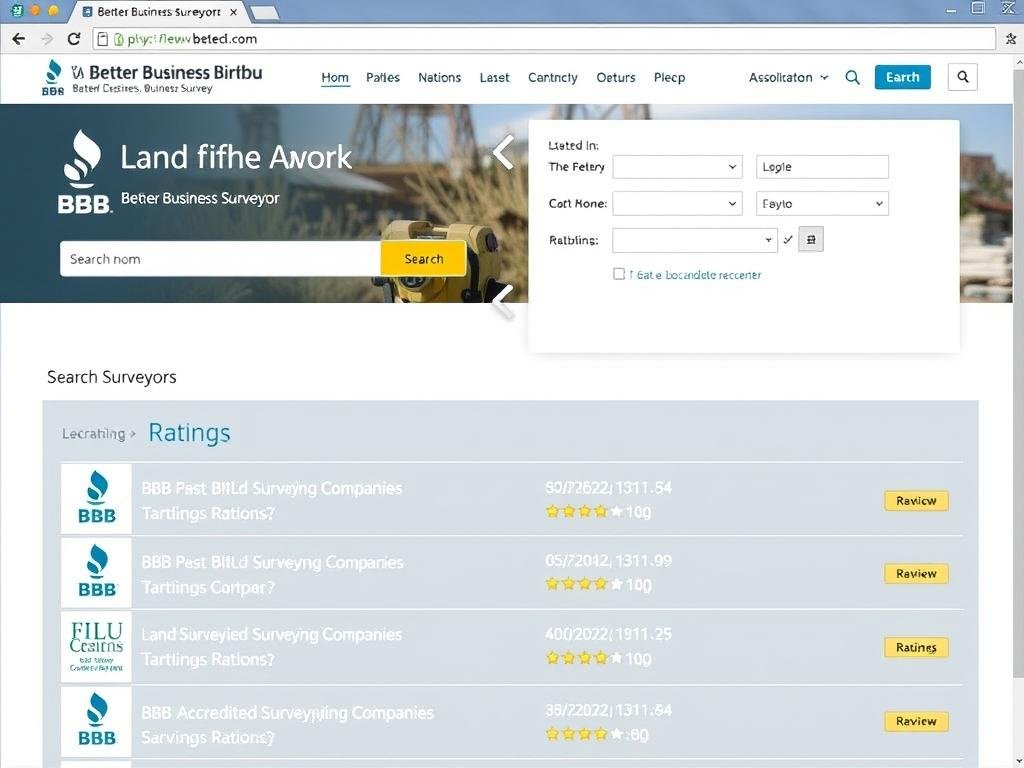
Better Business Bureau (BBB)
The BBB maintains a directory of accredited land surveyors with verified ratings and reviews. Their platform allows you to search by location and filter by rating.
Pros:
- Verified business information
- Includes BBB ratings and accreditation status
- Shows complaint history and resolution
Cons:
- Not all legitimate surveyors are BBB members
- Limited filtering options
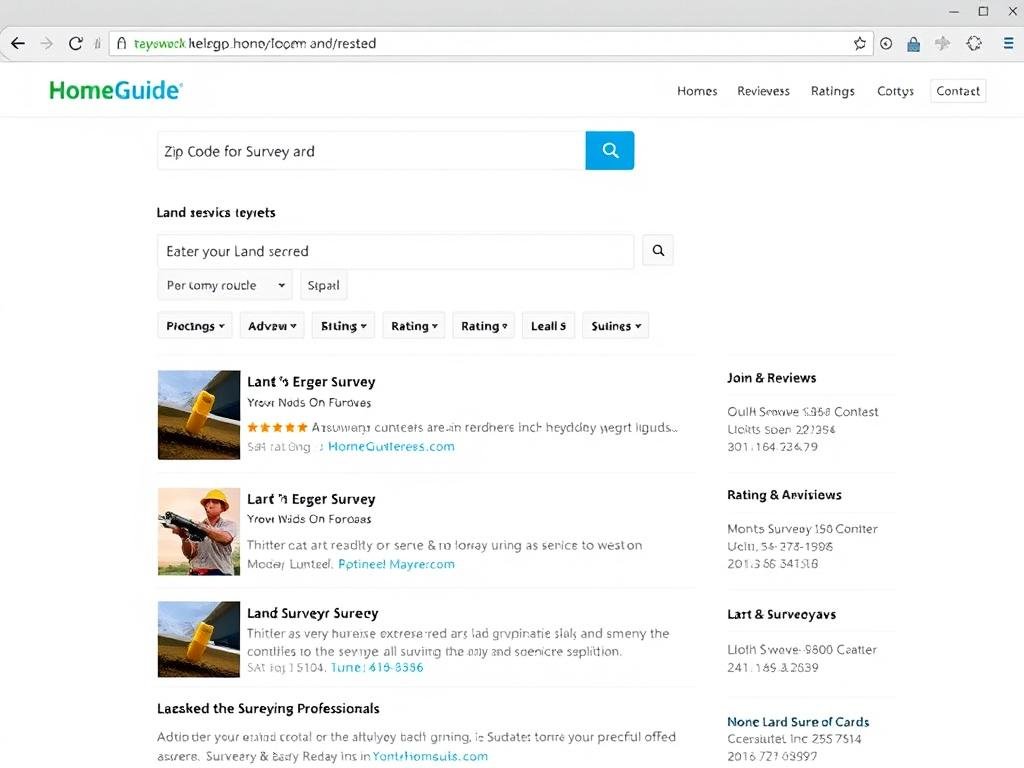
HomeGuide
HomeGuide connects homeowners with pre-screened local surveyors. Enter your zip code and project details to receive customized quotes from qualified professionals.
Pros:
- Get multiple quotes to compare
- Verified customer reviews
- Detailed professional profiles
Cons:
- Requires contact information
- Limited to participating surveyors
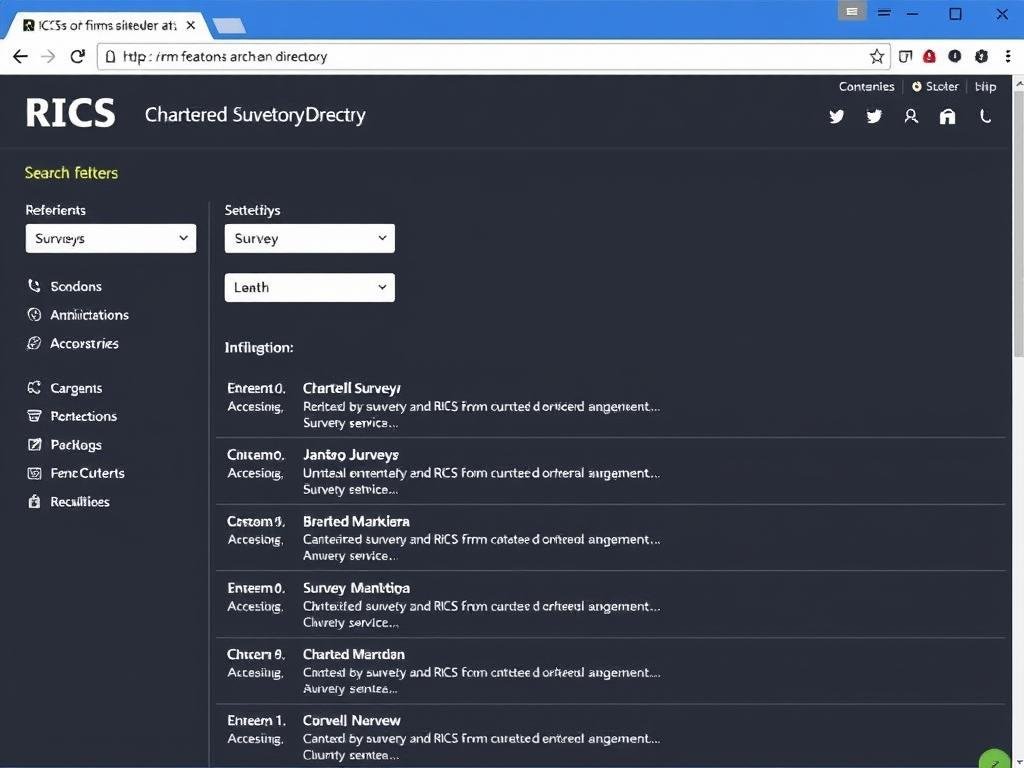
RICS Firms
The Royal Institution of Chartered Surveyors (RICS) maintains a directory of qualified surveyors who meet their strict professional standards and ethics requirements.
Pros:
- Only includes highly qualified professionals
- Strict ethical standards
- Specialized service categories
Cons:
- Fewer options in some areas
- May have higher average costs
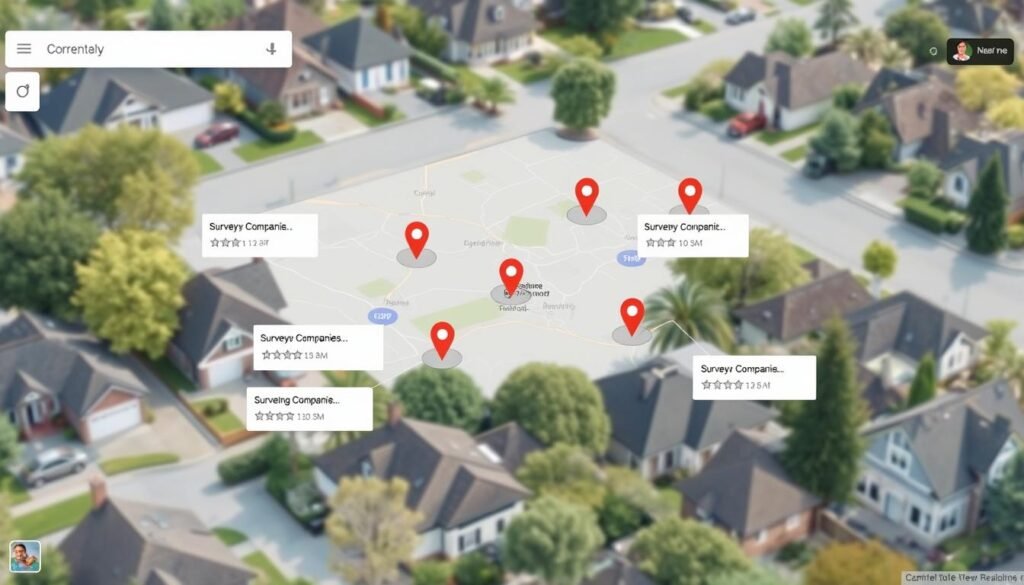
Many qualified surveyors operate in most residential areas
Find a Qualified Surveyor Near You Today
Ready to connect with professional surveyors in your area? Fill out this simple form to get started.
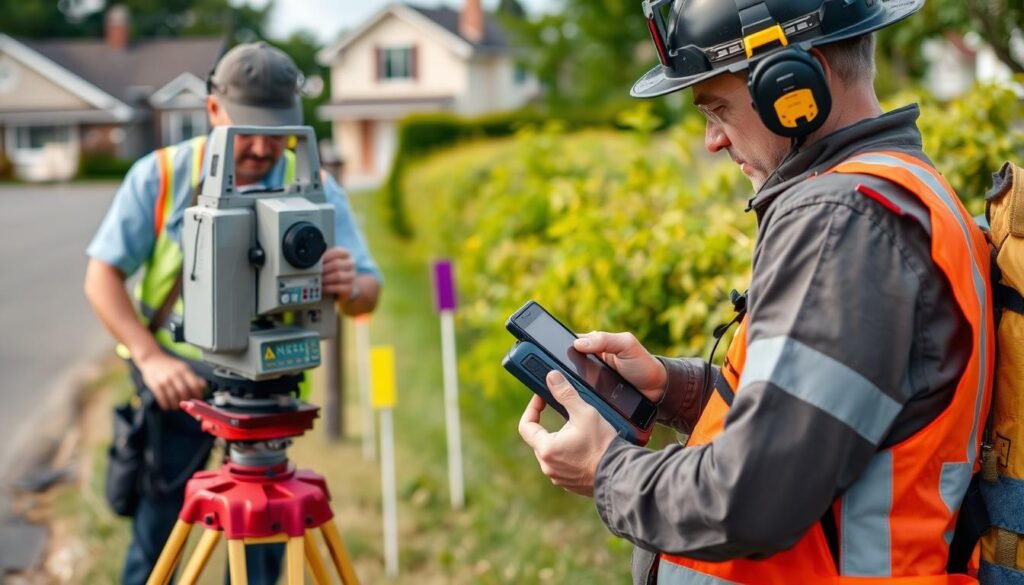
Professional surveyors use advanced technology to ensure accurate property measurements
Making Your Final Decision
Finding the right surveyor near you is a crucial step in any property transaction or development project. By understanding what surveyors do, knowing how to find qualified professionals, asking the right questions, and comparing quotes, you can make an informed decision that protects your property interests and ensures accurate results.
“A good survey is an investment in your property’s future. It provides clarity, prevents disputes, and creates a legal record that stands the test of time.”
— National Society of Professional Surveyors
Remember that the cheapest option isn’t always the best value. Focus on finding a licensed, experienced surveyor who communicates clearly and has positive reviews from previous clients. Take the time to compare multiple options, and don’t hesitate to ask for clarification about any aspect of their service or pricing.
Ready to Find Your Local Surveyor?
Take the first step toward resolving your property questions with professional surveying services.

